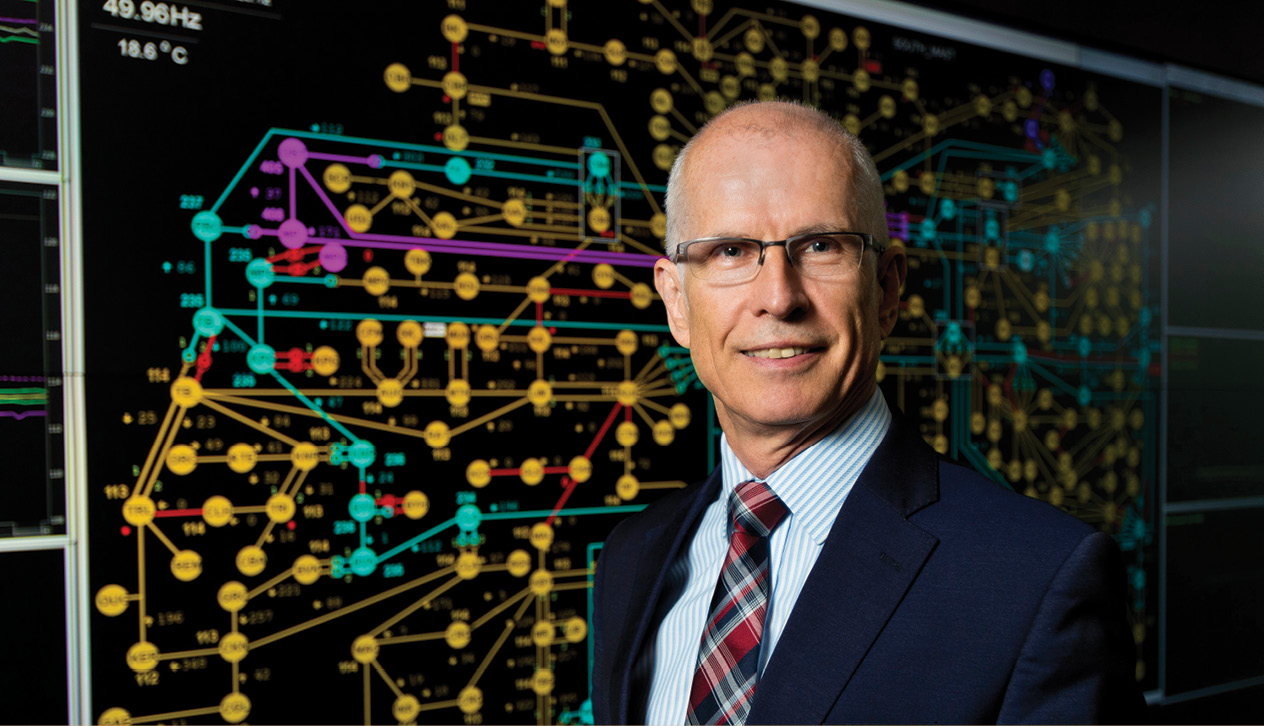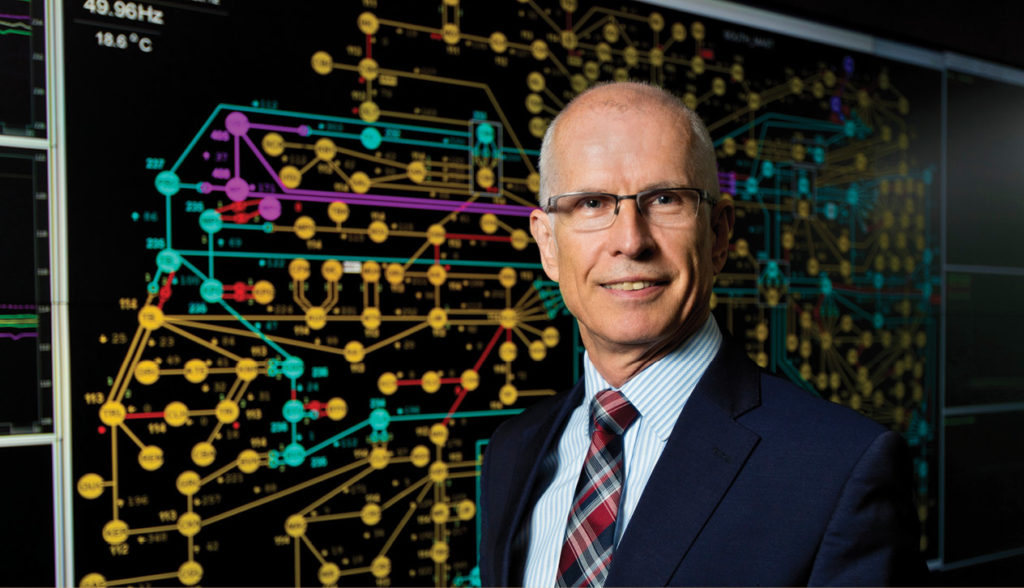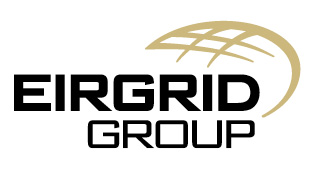Leading change today for energy tomorrow


The EU-SysFlex project, led by EirGrid Group, has received funding to conduct research that will facilitate the large-scale integration of renewable energy and support EU plans for a greener Europe. Robin McCormick, Director, Operations, Planning and Innovation at EirGrid Group and General Manager, SONI writes.
This summer, a consortium of leading European energy companies, led by EirGrid Group, was awarded over €20 million by the EU to fund research into the deployment of renewable energy. The wide-ranging project, known as EU-SysFlex, is a very public acknowledgement of the ground-breaking work that EirGrid and System Operator Northern Ireland (SONI) have carried out in this sector over recent years.
EirGrid and SONI engineers have been working to meet the challenges of operating the electricity system while achieving high renewable electricity targets. Running the power system with the current high levels of renewable energy is unprecedented and presents significant challenges for its real-time operation.
In 2016, wind energy accounted for 25 per cent of all electricity consumed on the island of Ireland. That is the average figure; it sometimes increased to over 60 per cent of electricity consumption. This is a remarkable achievement by the engineers responsible for running the power system in Ireland and Northern Ireland. This level of renewable energy is one of the highest in the world and is expected to rise to an average of 40 per cent by 2020 in order to meet Irish and Northern Irish government targets.
The EU-SysFlex consortium will receive the funding under Horizon 2020, the EU’s €80 billion research and innovation programme. EirGrid Group is the overall project coordinator with French electricity group EDF acting as technical co-ordinator. The four-year project involves 34 organisations from 15 countries across Europe. It underpins European Union plans for a greener and more decarbonised Europe by increasing the levels of renewable energy.
Specifically, the aim of the EU-SysFlex project is to identify issues associated with integrating large amounts of renewable energy; provide practical assistance to power system operators across Europe; and identify a long-term roadmap to facilitate the large-scale integration of renewable energy. The project team will identify improvements to market design, regulation, operational practices and enhanced system tools.
The team will also trial solutions in concept labs to physically test potential energy scenarios. Furthermore, for the first time, a wide-scale model of the pan-European system will be developed and deployed in training simulators. This will provide a long-term roadmap for how the EU can realise its renewable energy goals into the 21st century.
This has all come to pass on the back of EirGrid Group’s ground-breaking Delivering a Secure, Sustainable Electricity System (DS3) programme, which was initiated in 2011. The aim of the DS3 Programme has been to meet the twin challenges of operating the electricity system in a secure manner while achieving 2020 renewable electricity targets. Achieving the 40 per cent renewable electricity targets by 2020 on a synchronous system is unprecedented and presents significant challenges for the real-time operation of the power system.
The programme brings together many different strands, including development of financial incentives for better plant performance, and the development of new operational policies and system tools to use the portfolio to the best of its capabilities. The DS3 team of engineers are focused on helping deliver short and medium-term energy targets. In tandem with this, we also have a team of people who are looking out beyond 2020 to consider a range of possible ways that energy usage may change. We call this scenario planning.
We introduced “Tomorrow’s Energy Scenarios” in Ireland to encourage a flexible and robust approach to grid development. It will allow us to manage uncertainties and be prepared for the changes of the future. It also allows us to better engage with our stakeholders by consulting at the earliest possible opportunity in our grid development process.
We have investigated key influences on the future use of the grid in order to develop our scenarios. Using these influences, we have developed four scenarios using our own experience and input received from government departments and agencies, energy research groups, industry representatives and bodies and the public. Each scenario describes a different possible future for the generation and consumption of electricity out to 2040. However, it is worth noting that an increase in demand for electricity is one theme common to all four scenarios.
Electricity demand growth has many contributing factors. Population growth, economic growth and, of course, the effects of weather are examples. Energy efficiency measures also help to reduce electricity demand. Our scenarios consider these factors along with other variables. We consider the electrification of heating and transport with heat pumps and electric vehicles. We also consider the possibility of consumers moving their electricity usage at certain times of the day in order to reduce their energy bills.
The biggest contributor to our future demand growth is large industrial customers such as data centres. Data centres are large buildings which house computer servers used to store data from smartphones, tablets and computers. They are attracted here by Ireland’s improved infrastructure and high levels of renewable generation.
Our scenarios predict a relatively slow uptake of pure electric vehicles until 2025-2030. It is likely that hybrid vehicles will act as a transition between petrol and diesel vehicles to electric vehicles. From 2025 onwards, improvements in battery technology and decreasing capital costs of electric vehicles are expected to significantly increase the level of electric vehicle uptake. The largest adoption of electric vehicles and heat pumps occurs in what we call our ‘Consumer Action’ scenario. This is a result of consumers trying to lower their carbon footprint.
“Running the power system with the current high levels of renewable energy is unprecedented and presents significant challenges for its real-time operation.”
Our scenarios look at a number of technologies for the electrification of heating in the future. Storage heaters, district heating and community-owned combined heat and power plants are all examined. We consider heat pumps to be the primary method by which heating electrifies in the future. Heat pumps are used for space heating and cooling, as well as water heating. We assume that the majority of heat pumps are installed in new buildings and housing developments. Heat pumps are more electrically intensive than electric vehicles.
The trend towards decarbonisation and reducing carbon output in the future will lead to reduced operating hours of large fossil fuel generators. Our scenarios examine possibilities for the future of coal, peat, gas and other fossil fuels.
The fossil fuel generators on the power system change dramatically over time throughout the four scenarios. Some generation fuel types are closed down, while other new generation begins producing power. Peat generation has stopped in all our scenarios by 2025, except in our ‘Slow Change’ scenario in which it stops by 2030. In some scenarios, it is replaced by biomass generation.
Finally, in terms of Ireland’s energy and emissions targets, decarbonisation of the energy system is a trend we see continuing into the future. All four scenarios show a decrease in carbon emissions out to 2030, with renewable electricity generation varying between 47 per cent and 75 per cent of total electricity demand, depending on the scenario.
Our “Tomorrow’s Energy Scenarios” is key to planning the grid and represents a long-term investment. We will continue to consult as well as updating the scenarios every two years.

Robin McCormick was appointed Director of Operations, Planning & Innovation at EirGrid Group in 2015 and is also the general manager of SONI. Robin previously held the role of general manager of the Single Electricity Market Operator.
He is responsible for the operation and planning of the power system in Ireland and Northern Ireland. Robin is a fellow of the Institution of Engineering and Technology and the Institute of Directors.
Contact David Martin on 01 237 0260 or david.martin@eirgrid.com for further information.





